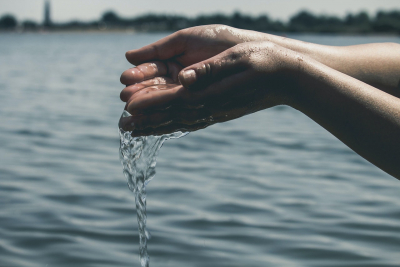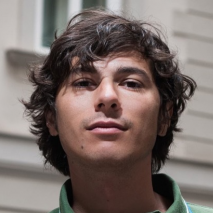


Peter McGrath, Coordinator of the InterAcademy Partnership (IAP) and of the UNESCO-TWAS Science Policy/Science Diplomacy programme, and Sena Galazzi, Associate Programme Officer of UNESCO-TWAS, co-authored Fast and Slow Issues in Science Diplomacy: Towards an Equitable Global Metis of Science Diplomacy, an article published in the January-March 2021 edition of Science Diplomacy, India’s Global Digest of Multidisciplinary Science.
In a section focused on Refugee and Displaced Scientists, authors highlight that
[a]s international science organizations, TWAS and IAP have both acted quickly in response to the COVID-19 pandemic. They are also both collaborating (also with the International Science Council, ISC) on a ‘slow-burn’ science diplomacy issue – the case of refugee and displaced scientists.
The movement of people across borders, often fleeing war or civil strife, is increasingly accompanied by those fleeing the effects of climate change. Some even argue that the ongoing Syrian civil war has been in part caused by climate change. Among those forced to leave their homes under such circumstances are scientists, engineers, medical personnel and other highly-trained individuals, as well as those perhaps still undertaking PhD studies. Such individuals are national investments, especially in poorer countries such as Yemen. The TWAS-IAP-ISC initiative aims to promote ways in which such people can continue their studies and research wherever they end up and thus, remain up-to-date to assist in rebuilding their home countries when it is safe for them to return.
Indeed, COVID-19 has highlighted the need for joined-up thinking in these two matters of science diplomacy – a rapidly-spreading pandemic and ongoing migration of trained professionals forced from their home countries. As of April 2020, for example, there were some 14,000 Syrian doctors in Germany alone who were waiting for their qualifications to be approved before they could practice in Germany.
In this context of global displacement, the pandemic has highlighted both existing and new vulnerabilities for those who fled as well as for those left at home. Significant reductions of remittances caused by illness, lockdowns and limited opportunities for migrants to work had the knock-on effect of reducing access to health services back home. Thus, containment in one country may have even led to the epidemic spreading elsewhere.
Despite the fundamental differences between the COVID-19 crisis and the global refugee crisis, both the pandemic and the need for more joined-up policies and programmes to assist refugee and displaced scientists have a common underlying challenge: How can countries be encouraged to work together on these two (and other) issues of science diplomacy? What tools and practices can they use? In working towards a more level playing field in the international arena, and towards a truly global, and sustainable, development, science diplomacy can be a key tool and method for building partnerships, equity and equality. How do we improve our practical knowledge and experience of these methods and make the most out of the science diplomacy framework? After all, this is built into Agenda 2030: SDG#17 calls for Partnerships for the Goals and SDG#10 calls for Reduced Inequality, both of which, alongside the more thematic SDGs, are a rallying cry for global equity and sustainable development.
The article also tackles the relationship between Science Diplomacy and the SDGs, vaccine diplomacy, and the gender dimension of refugee and displaced scientists. You can download the full article at https://www.interacademies.org/publication/fast-and-slow-issues-science-diplomacy-towards-equitable-global-metis-science-diplomacy.
